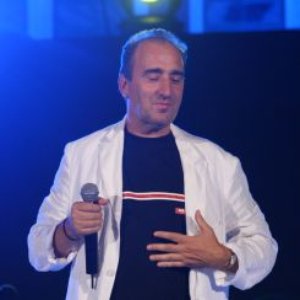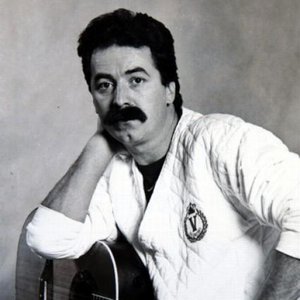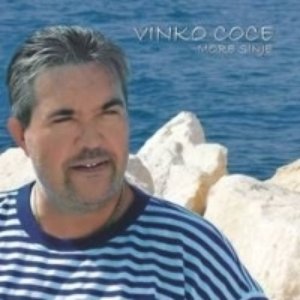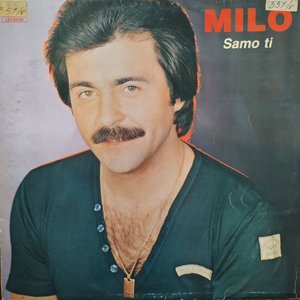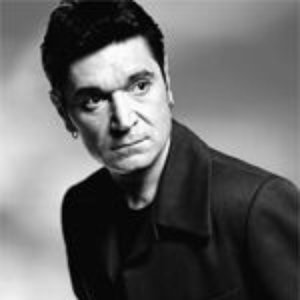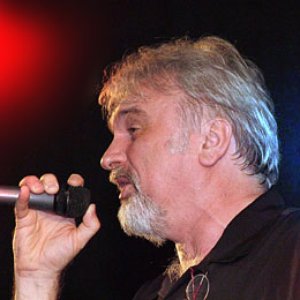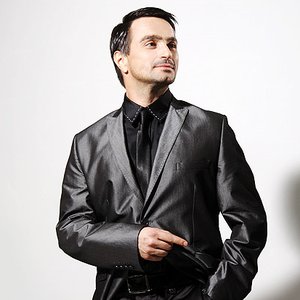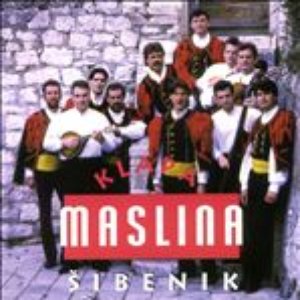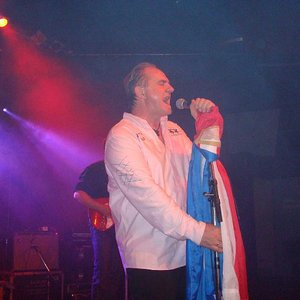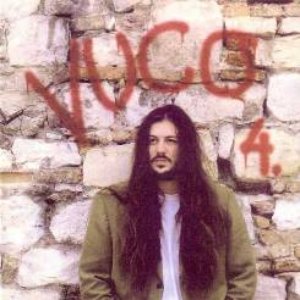Biography
-
Born
16 July 1941 (age 82)
-
Born In
Šibensko-kninska županija, Croatia
Mate "Mišo" Kovač (pronounced ; born 16 July 1941) is a Croatian recording artist. He is the best selling artist from Croatia, with well over 20 million records, cassettes and compact discs sold to date, and is often regarded as one of the most popular musical performers from Southeastern Europe.
Kovač was born in Šibenik during the Italian occupation of Dalmatia in the World War II as the second child of Zrinka and Jakov Kovač. His mother was originally from the island of Vrgada, and his father was from the Škopinac district of Šibenik. Mišo grew up in a family with his brother Ratko and sister Blanka. As a child, he grew up in a street in Šibenik's Varoš, where musicians Vice Vukov and Arsen Dedić lived at the same time. As a young man, he practiced football as a goalkeeper and started playing for the junior team of HNK Šibenik, dreaming of a professional football career in Hajduk Split, which he was also a fan of, often traveling by boat from Šibenik to Split for matches. He was receiving defeats of his team very emotionally.
Hearing the performances of the Šibenik-based singer Ljubo Lučev, 16-year-old Kovač is slowly giving up football and dedicating himself to music. He listened to popular Italian performers such as Luciano Tajoli, Tony Dellag and Adriano Celentano and the American Johnnie Ray. He finished industrial high school, learning the trade of upholsterer. In 1961, at the Prvi glas Šibenika (First Voice of Šibenik) competition, he shared the title of the best with Mirko Vukšić, the future guitarist of the group Mi, and chose the single by Elvis Presley for the award.
At one talent competition in Karlovac, with the song "I Can't Stop Loving You" by Ray Charles, he experienced great success and was soon noticed by music producers. He had his first impromptu performance with the Alfons Vučer ensemble in Zagreb's city cafe in the autumn of 1964, and after the consent of editor-in-chief Pero Gotovac, he received a contract to record his first record with Jugoton, a translation of "I Can't Stop Loving You" by his idol Ray Charles. The record was a success and in the summer of 1965 Mišo performed at the Melodije Jadrana (Melodies of the Adriatic) in Split with three performances. Despite the disappointing performance, new records followed with silver circulations of fifty thousand copies – renditions of "Ja odlazim" (I'm Leaving), "Vrijeme plakanja" (Crying Time), "San Francisco" (original by Scott McKenzie), "Da je duži moj dan" (If My Day Was Longer), and others.
The hit with which he established himself as a renowned performer was the song "Više se nećeš vratiti" (You Won't Return Again), the winning song from the popular Sarajevo festival Vaš šlager sezone (Your Schlager of the Season) (1969), the work of the then young composer and lyricist Đorđe Novković. The single sold 183,987 copies, the second best-selling record by Jugoton that year. In 1969, he sold a total of five records in 252,905 copies, making him Jugoton's best-selling singer. The collaboration with Novković marked almost the entire Kovač's oeuvre and continued until Novković's sudden death in 2007. In 1971, he won the Split Festival with the song "Proplakat će zora" (The Dawn Will Start Weeping) by Stjepan Mihaljinec and Drago Britvić, which sold more than 300,000 copies, which definitely established him on the throne of the most popular singer in Yugoslavia. In two days he won five awards, and in the middle of the Croatian Spring, he paid the proceeds from the sale of the plaque for the construction of the Zagreb-Split highway. In 1971, he almost died in a car accident near Zadar. His car was completely smashed, and as he left a scar above his upper lip, during his recovery, Mišo decided to let go of his mustache, which will later become his trademark.
In 1972, he attended an Elvis Presley concert at New York's Madison Square Garden, and Elvis' performance of Frank Sinatra's "My Way" standard made a great impression on him. In 1974, he recorded an album of klapa and folk songs "Oj ti dušo duše moje" (Hey You, the Soul of My Soul) with Klapa Šibenik. The song "Drugi joj raspliće kosu, a ja je volim" (The Other Man Unravels Her Hair, and I Love Her) also became popular. In 1975, with the song "Ostala si uvijek ista" (You've Always Stayed the Same), after his recognition as the best in his career, he performed at the Jugoslovenski hit parade (Yugoslav Parade Hit) competition in Belgrade. Although he won overwhelmingly, the audience did not immediately accept it, and the song gained popularity only 10 years later, when it was released on the album of the same name sold 200,000 copies. In 1977, he won the Split Festival with "Noćas ćemo zemlji ko materi reći" (Tonight We Will Tell the Land Like a Mother) with the Klapa Maslina. After 1980 and winning the festival in Split with the song "Dobra ti večer, mati moja" (Good Evening to You, My Mother), he decided not to perform at festivals. In 1982, he returned to Dalmatian, local themes with the golden album Dalmacija u mom oku (Dalmatia in My Eye), arranged by Krste Juras and Dušan Šarac, from which the hits became the single of the same name and "Šibenske kale" (Šibenik's Streets). In 1983, he experienced a convincing failure with the song "Posadi cvijet" (Plant a Flower) in the national selection for the representative of Yugoslavia at the Eurovision Song Contest, which he attributed to the setting. He also collaborated with Idoli and Vlada Divljan on the recording of his 1968 song "Da je duži moj dan" for the soundtrack of the film Six Days of June in 1985. The most fruitful period followed: between 1985 and 1988 he recorded his greatest hits, such as "Ako me ostaviš" (If You Leave Me), "Jedan dan života" (One Day of Life, a cover of the Mexican song "Las mañanitas " that was popularized in Yugoslavia by Mexican movie " Un dia di vida " ), "Sutra mi sude" (I'm Being Tried Tomorrow), "Ti si pjesma moje duše" (You're My Soul's Song, adaptation of the song "Seven Spanish Angels" by Willie Nelson and Ray Charles), "Svi pjevaju, ja ne čujem" (Everyone's Singing, I Can't Hear Them) and many others. His music career continued to flourish; he was named Singer of the Year five times, and was named Person of the Year in the former Yugoslavia in 1989.
In September 1991, he joined the Croatian Band Aid on the recording of the song "Moja domovina" (My Homeland), in which he sang the line "Ima oči boje mora" (She has sea-colored eyes). In 1992, his 16-year-old son Edi, a member of the Croatian Army's special unit Scorpions, died in Zagreb under suspicious circumstances. Mišo never completely got over that tragic event. He also released a single "Pjesma za Edija" (Song for Edi). After Edi's death and the big concert Noć svijeća (Night of Candles) in front of 50,000 people at Stadion Poljud in Split in 1993, Kovač publicly announced that he would not perform again and took his first name again; however, he held a whole series of farewell concerts and did not end his career. He also recorded other patriotic songs during the Yugoslav Wars, such as "Grobovi im nikad oprostiti neće" (Graves Will Never Forgive Them) and "To je zemlja gdje žive Hrvati (Herceg-Bosna)" (That's a Land Where Croats Live (Herzeg-Bosnia)). In 1996 he held a concert Svojoj vjernoj publici (To My Faithful Audience).
In addition to his son Edi, he lost his mother and younger brother Ratko in the 1990s, while his daughter Ivana struggled with addiction. After years of depression and alcoholism, on 14 January 1999, in a Zagreb apartment at Maksimirska 69, Kovač shot himself in the chest with an unregistered Beretta pistol, but he managed to survive and fully recovered, and his mental state improved considerably.
After recovering from a suicide attempt, he held a big concert at Dom Sportova in Zagreb. However, that was not the end of Kovač's career. New albums followed; in 1999, Mišo recorded the album Budi čovjek dobre volje (Be a Man of Good Will), as he says, thanks to his daughter Ivana. The following year, he briefly returned to music festivals and immediately won the Split Festival with the song "Vraćam ti se Dalmacijo mati" (I'm Returning to You, Mother Dalmatia). In the same year he recorded the big hit "Dalmatino", a kind of anthem of Dalmatia. In September 2001, he held two concerts in New York for Croatian emigrants and donated half of the proceeds to the families of firefighters killed on 11 September. For the new studio album Mir u srce (Peace in the Heart), released in 2004, in 2006 he received a silver award, and for the compilations Pjevaj, legendo (Sing, Legend; 1999) and Najdraže pjesme Miše Kovača (Favorite Songs by Mišo Kovač; 2003) two platinum awards. From the album Mir u srce, the single "Rođo moj" (My Cousin) achieved the greatest success. In August 2004, with Klapa Teuta as guests, he held a concert on the Republic of Croatia Square between the Cathedral of St. James and the city hall in Šibenik. The concert was published on the DVD Mišo u Šibeniku (Mišo in Šibenik).
After a break, in 2006, he recorded the album Ja sam kovač svoje sreće (I Am the Blacksmith of My Happiness) on which his daughter Ivana joined him as a guest: the biggest success from that album is their duet "Nema mi do tebe nikoga" (I Have No One Else Like You). In 2007, for the 28th time in his career, Mišo performed in the full Arena Gripe in Split, while the following year he held concerts in front of a large audience in the Pula Arena and Krešimir Ćosić Hall in Zadar with more than 8,000 fans. In 2008, Croatia Records announced reissues of 13 of his most famous albums from the 1970s and 1980s with digitally remastered sound.
In 2009, Mišo Kovač, as the first Croatian singer, held a concert in the newly built Arena Zagreb in front of 20,000 fans of all generations, thus once again proving the status of a legend of the Croatian music scene. The following year, he released his, as he said, last album Ne tražim istinu (I'm Not Looking for the Truth), and announced the end of his career. The album Ne tražim istinu achieved moderate success, experiencing a golden circulation. Almost all the songs are covers of old songs, released on earlier albums and re-recorded in new arrangements. The third single from the album and the only new song, a duet with his daughter Ivana, the ballad "Tvoja mala" (Your Baby Girl), was a bit more successful on the charts, reaching the top of domestic pop music on some radio stations. However, despite the announcement of the end of his career, he continued with performances and concerts, and with the Klapa Rišpet of Ivo Amulić he recorded the song and video "Sunce mi od tebe dolazi" (My Sunlight is Coming from You), which in March 2012 took first place on the Radio Dalmatia top chart Hrvatski Top 33.
In March 2012, in recognition of the profession, Mišo received the Porin for lifetime achievement. Porin was also awarded to conductor, arranger, composer and pianist Stjepan Mihaljinec, who also wrote some of Mišo's greatest hits. Mišo performed some of his greatest hits with Mihaljinec on the piano at the award ceremony, to the applause of the audience and the musicians present, as well as other Porin winners. The five-time sound carrier 100 originalnih hitova – Mišo Kovač (100 Original Hits – Mišo Kovač) was also released, which achieved a diamond circulation, for which he was awarded in February 2014 at two sold-out concerts held at the Vatroslav Lisinski Concert Hall in Zagreb. At the same time, Ivana Kovač and Klapa Bunari released a song dedicated to Mišo–"Dalmacijo, srce oca moga" (Dalmatia, My Father's Heart)–which was well received by the audience.
Artist descriptions on Last.fm are editable by everyone. Feel free to contribute!
All user-contributed text on this page is available under the Creative Commons Attribution-ShareAlike License; additional terms may apply.

